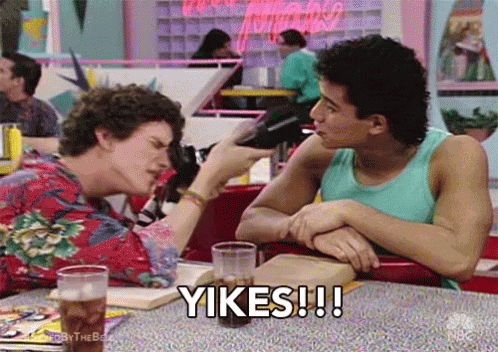America Needs Way Less 'Whiplash' Based Aspirations
We need less Terence Fletchers' in the world, not more.

Before I begin, I have a bone to pick with the Netflix/ESPN miniseries "The Last Dance." It's not because the series wasn't phenomenal (although more sports biopics since have tried to emulate it with little success); it's because of one of the most pivotal moments of the docuseries and what people took away from it.
In the final moments of episode seven, the greatest NBA player of all time, Michael Jordan, breaks down as he explains why he approached the game of basketball the way he did. His approach was relentless and ruthless, and it sometimes wore on his teammates to the point of physical altercations. However, the Chicago Bulls' rewards were six NBA world championships (two three-peats). "Winning has a price," Jordan says. In terms of athletic competition, when the Bulls of the 90s had to compete against teams like the “Bad Boy” Detroit Pistons, the New York Knicks, and the Reggie Miller-led Indiana Pacers, the Bulls had their work cut out for them. Yet, they persevered—a big part was due to Jordan’s work ethic, maniacal approach to games, workouts, and overall love for the game.
But that last moment in the episode was meant to prompt us to ask ourselves, “Is sacrificing everything on the altar of one thing worth it?” When you furiously pursue something to the point where it pulls you so far down the road in the opposite direction of rest, companionship, and leisure, is there a way to find your way back? I’m sure if Michael Jordan had the chance to lace them up one last time and go against Lebron James, Steph Curry, and Kevin Durant, he would. Hell, he returned and played two seasons with the Washington Wizards in 2001-2002 and 2002-2003. However, father time is undefeated, and no matter how talented Jordan was, you can’t escape the inevitability of aging.
Tenacity, discipline, and dedication are all essential qualities to embody when you want to excel. Still, these qualities can easily be distorted or tuned to fit someone else's purpose— especially in the workplace. How often have you heard companies adopt the “we are family” mantra to tether your being to that place? Next thing you know, you’re working long hours for insufficient pay under the endless pursuit of productivity under the mantra of the three qualities I just mentioned. The next thing you know, something meant to make you happy only exists to keep you hungry.
I say all this to ask, why would we ever want to embody the dark lesson of Damien Chazelle’s 2014 film “Whiplash?” It’s a great film that depicts an abusive relationship between an ambitious student and teacher intertwined at the intersection of greatness and insanity. Former Republican presidential candidate. and upcoming Department of Government Efficiency co-lead Vivek Ramaswamy referenced the film in a thread on X, lambasting American culture and giving the reasons tech companies opt to hire foreign-born engineers.
Some of the comparisons were funny. For example,
"A culture that venerates Cory from 'Boy Meets World,' or Zach & Slater over Screech in 'Saved by the Bell,' or ‘Stefan’ over Steve Urkel in 'Family Matters,' will not produce the best engineers."

If you remember ‘Saved by the Bell, Screech was the “smart one” in the group, but he was also a bit of a creep. No matter how often Lisa said she wasn’t interested, he just wouldn’t let his infatuation for her go - even to the point of fighting Zach over it. Even then, Zach got a 1502 on his SATs. Steve Urkel had the same issue as Screech, incessantly showering Laura Winslow with rebuffed showings of affection.
Remember the episode where he got up in a tree outside her window and played the accordion? Now, we’ll ignore the later seasons where they eventually get together (that’s a whole other can of worms), but it’s not that we idolized Stefan, either. If anything, his creation could be considered a tech bro avatar of an insecure person afraid of being themselves. Cory Matthews is just kind of an everyman protagonist. Still, he has a moral compass that centers around having a good family, seeing his best friend Shawn through his ups and downs, and ultimately having a long-lasting relationship with Topanga. Oh, the horror to be Cory Matthews!
But then there’s the ‘Whiplash’ of it all, where Ramaswamy says,
“More movies like Whiplash, fewer reruns of “Friends.”
That’s a not-so-subtle film choice to show you what the hijacking of ambition looks like to someone who doesn’t want it for your benefit. ‘Whiplash’ involves a hard-working jazz student named Andrew (Miles Teller) who idolizes Buddy Rich and attends the Shaffer Conservatory in New York City. It’s at the beginning of the film where there’s a wonder or a childlike twinkle in his eye about music. All that changes when he meets and is under the tutelage of resident jerk conductor Terence Fletcher (J.K. Simmons). Fletcher beats Andrew down physically, emotionally, and mentally.
There’s a scene where Andrew drives to a concert after a car accident, bloody and injured, to make a concert because of how unforgiving Fletcher is. As “Whiplash’ goes on, Fletcher’s “great at all costs” mantra acts like a virus. It’s no longer about the love of jazz and Buddy Rich for Andrew. Now it’s Charlie Parker, Fletcher’s aspiration, and a possible metaphor of who Andrew could eventually become, Fletcher’s former student Sean Casey. You learn that Sean committed suicide due to all the abuse he underwent at the behest of Fletcher. Fletcher himself lies about how Sean dies, and it’s also telling Charlie Parker died at a young age himself.
Even when Andrew spills the beans and gets Fletcher removed from the school, Fletcher has already won. Andrew can’t return to his life before Fletcher’s class because that innocence was ripped away. He ends a promising relationship at the behest of chasing Fletcher’s tempo. Andrew watches an old home video of himself younger, playing the drums, and cries because he knows that kid never returns. All this leads him back to Fletcher and more humiliation because the only goal is to get the “good job.”
The interpretation of “Whiplash’s” ending has been misunderstood, as it’s not a triumphant moment, but a realization of a tragedy come full circle. Fletcher acknowledges Andrew with an excited grin, but it isn’t because he’s about to be chummy with him — Andrew is broken. Those who look at “Whiplash” as an aspirational story want to be Fletcher and for you to be either Andrew or Sean. They desire people to be shells of themselves to incessantly run on the hamster wheel so they can then reach their ultimate goals. Meanwhile, you’ll be left wondering if all that drive is worth it and where it led you astray. Ambition coupled with empathy is powerful. When it is stripped of understanding and used in a manner that takes the humanization out of it, it’s poison.
You can be a leader without looking to break somebody's psyche, and you should aspire to be someone in an environment that doesn't foster those kinds of mentorships.
We need less Andrew Neimans and Sean Caseys and a hell of a lot less Terence Fletchers. (Also, who hangs out at the mall anymore? Are there any left?)



